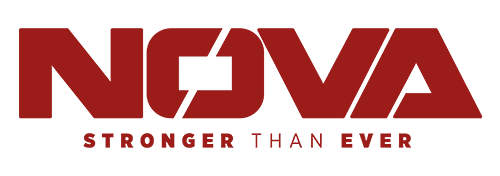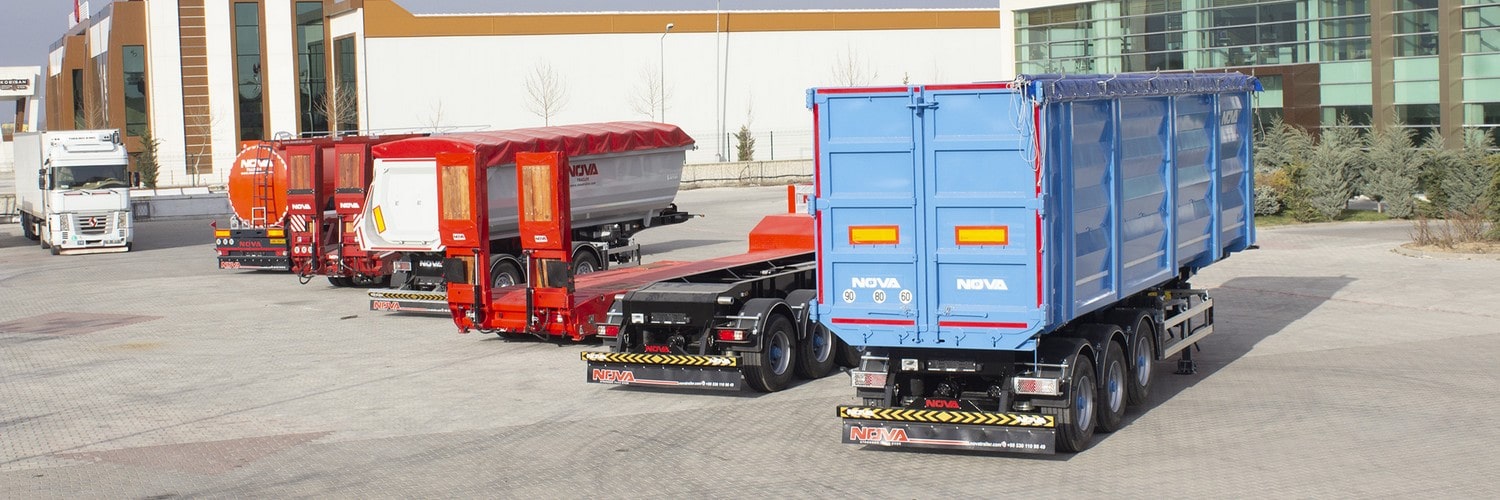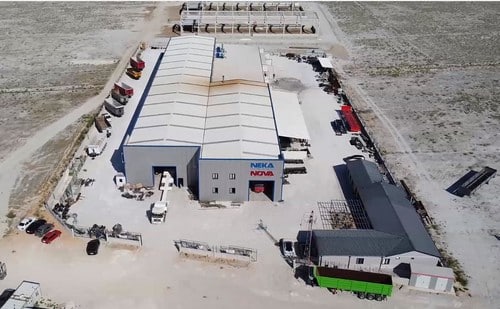NOVA TRAILER
STRONGER THAN EVER…
NOVA TREYLER DORSE ITH. IHR. SAN. VE TIC. LTD. STI. is a manufacturing company that produce different kind of semi trailers, with its experience in international markets since 2013 from Turkey.
Nova Trailer has been designing and making trailers with special considerations for road safety, economy and flexibility. With a complete product range Nova Trailer is successful over the 25 different countries in Middle East, Europe, South America, Africa, with mass and customize production as well as special transport solutions for individual customer demands. As one of the few producers with such an wide range, Nova is in a position to deliver, not just standard but also custom built semi trailers quickly and reliably. Our competence does not in any way end at the design and production of commercial vehicles: A comprehensive service offer rounds off our wide-ranging product portfolio.


